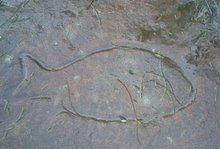 People pass on superbugs to seagulls. "...Wild birds pick up E. coli of human origin, and with human resistance traits, and may accordingly also act as an environmental reservoir and melting pot of bacterial resistance with a potential to re-infect human populations."
People pass on superbugs to seagulls. "...Wild birds pick up E. coli of human origin, and with human resistance traits, and may accordingly also act as an environmental reservoir and melting pot of bacterial resistance with a potential to re-infect human populations."
Both aggregate at beaches and like to share take-away food. Humans leave the 'throw away wrappings', gulls leave their feces on the beach promenade.
Waste management on the Manly Beach front (images) takes the form of high-pressure hosing, and debris blowers. All are petrol powered, polluting and very noisy. The waste, which as we now know has the potential to contain antibiotics-resistant bacteria is 'dispersed' by the air or water/aerosol pressure. The waste is blown, wet or dry, either in the direction of the beach or towards South Steyne and its outdoor eateries. Beach users, parade walkers and customers of the eateries need assurance that risk factors are being kept to a minimum.
- Silver Gulls (Larus novaehollandiae) are a native and protected species. Enforcing the 'no feeding' rules would limit their spread.
- Eradicate invasive species (Indian Mynahs) and their feces, dog feces on public footpaths. Enforce the law.
- Adopt sustainable waste management not based on petrol and that does not constitute noise pollution.
Via > > Bonnedahl et al. Dissemination of Escherichia coli with CTX-M Type ESBL between Humans and Yellow-Legged Gulls in the South of France. PLoS ONE, 2009; 4 (6): e5958 DOI: 10.1371/journal.pone.0005958
Escherichia coli , antibiotic resistance
Reverse zoonosis
Image: Google Maps, Manly Beach front, parade with eating facilities, South Styne and the eateries opposite.











No comments:
Post a Comment